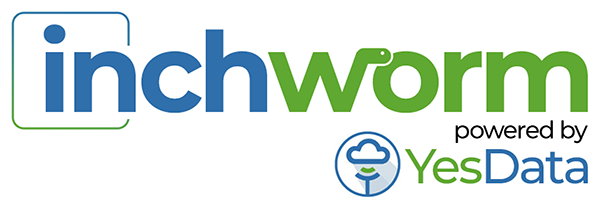When it comes to sales and marketing, CRM data cleaning is crucial for maximizing both the quality and quantity of your data. According to research from Experian, while most companies have some form of data quality solution, 91% still feel their revenue is negatively impacted by inaccurate data.
Investing in quality CRM data solutions is essential, but the cost can vary depending on the type of service you choose.
Buying Individual CRM Records
A popular way to purchase CRM data is by buying individual records. Providers typically sell batches of data at a flat rate, with prices ranging from $150 to $250 for 1,000 records, or about $0.15 to $0.25 per record. These records usually include essential details such as names, phone numbers, email addresses, job titles, and company names.
Monthly CRM Data Subscription Plans
Another option is subscribing to a monthly CRM data plan, like YesData offers. With a monthly plan, you pay a fixed rate each month for a set number of records. Some plans also limit the number of users who can access the data, which is crucial for businesses with large sales teams. Monthly plans typically range from $25 to $1,000 per month, depending on the type of records and the number of users who need access.
Which Option Is Best for You?
Choosing between buying records in bulk or subscribing to a monthly plan depends on your specific needs. If you’re looking for a continuous flow of fresh data to supplement your CRM, a monthly plan might be the right fit. However, if you’re running a special marketing campaign or need a one-time data boost, buying individual records may be the best solution.
Things to Keep in Mind
-
Annual Payment Terms: Some data providers require annual payments, which can increase your upfront costs, even if the monthly plan seems more affordable at first glance.
-
Ownership and Access to Data: Not all providers offer complete ownership of the data. Some only allow access through their proprietary platform, or they may limit how you can use the data within your CRM. Make sure your provider allows flexibility, such as downloading data into spreadsheets if you need that functionality.
-
Minimum Purchase Requirements: Some providers have minimum order requirements that could force you to buy more data than you actually need. It’s essential to discuss these terms upfront to avoid unnecessary purchases.
-
Data Relevance: If you’re targeting a new product or market, bulk data purchases can sometimes be a gamble. If the data doesn’t match your ideal customer profile, you could end up with a list that isn’t very useful for your needs.
How Clean Is Your CRM Data?
When purchasing CRM data, don’t forget about the accuracy of the records. Data naturally decays at about 3% each month. If you’re buying data on a regular basis, look for a provider that offers data cleaning services to ensure that your records stay accurate and relevant over time.
At YesData, we provide a data cleaning tool for just $20 per user per month, along with a CRM data plan for $100 per user per month. We’re confident in the quality of our services, so we don’t require long-term contracts or annual commitments. Contact us today for 350 free records and a 3-day all-access demo to see how our solutions can optimize your CRM data.
FAQs
1. What exactly is inaccurate CRM data?
Inaccurate CRM data includes missing or outdated information like wrong phone numbers, incorrect email addresses, outdated job titles, or duplicated records. This can cause your sales team to waste time chasing the wrong leads and make it harder to reach your sales goals.
2. How does inaccurate data impact sales teams?
Inaccurate data slows down your sales process. Your team might waste time following up on leads that aren’t relevant, or they might struggle with outdated contact details. This ultimately results in missed opportunities and lower conversion rates.
3. Why is it important to keep CRM data clean?
Keeping your CRM data clean is essential because it ensures your sales team always has the most up-to-date information at their fingertips. Clean data leads to better targeting, improved lead quality, and more successful sales engagements.
4. How often should I clean my CRM data?
Ideally, you should clean your CRM data on a regular basis—monthly or quarterly. Regular cleaning helps keep your data fresh and ensures your sales team has accurate information to work with at all times.
5. What tools can help clean bad data in CRM?
YesData offers a powerful data cleaning tool that helps you cleanse, update, and validate your CRM data. We also offer a CRM data plan to keep your records consistently accurate and up-to-date.
Conclusion: Take Charge of Your CRM Data for Better Sales Results
CRM data is a key factor in driving sales success. However, bad data can undermine your sales efforts and make it harder to close deals. By ensuring your CRM is filled with clean, accurate data, you give your sales team the best chance at success.
At YesData, we offer comprehensive solutions to keep your CRM data accurate and fresh. With our easy-to-use data cleaning tools and flexible pricing options, we make it simple to maintain the quality of your data—so your sales team can focus on what they do best: closing deals.
Don’t let bad data hold you back. Contact us today to get started with 350 free records and a 3-day all-access demo. We’re here to help you optimize your CRM data for success.

